A Living Learning Lab For Equity: Keesa V. Johnson (MDes ‘21) and the Campus Farm
“’Each generation must, out of relative obscurity, discover its mission, fulfill it, or betray it.’ Those are the words of Frantz Fanon," says Keesa V. Johnson (MDes '21). "And I'm not going to betray anything.”
Johnson's declaration was made this past February, at the close of her presentation at the Diversity, Equity, and Inclusion Symposium: Building Community and Connecting Across Difference.
Finger-snapping and noises of approval from the audience echoed in Rackham's assembly hall as Johnson walked back to the speakers' table. There she rejoined a small group of dynamic University of Michigan DEI graduate student staff assistants and student DEI leaders. Their disciplines included education, engineering, and public health, to name a few.
For Johnson, listening to the speakers discuss the impacts of their research was inspiring. In addition to her MDes degree through the Penny W. Stamps School of Art & Design, she's pursuing a DEI certification through the Rackham Graduate School. Both are challenging programs — and both focus on delivering equity to the community. Johnson and her MDes cohort are working under the “wicked problems” umbrella of Equity and Access.
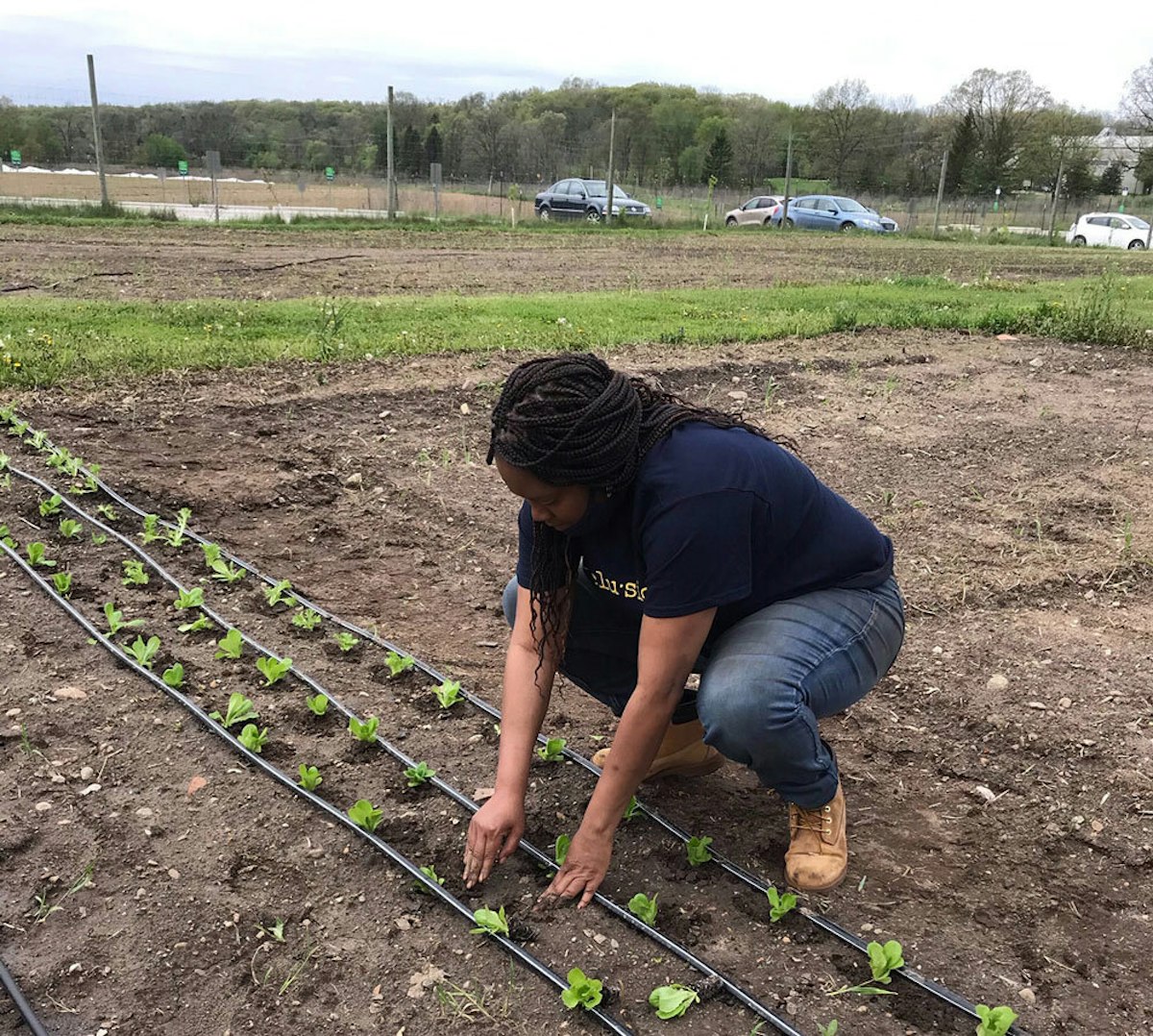
At the end of the symposium, Johnson left with some food for thought about the work she's doing as the DEI manager at the Campus Farm at Matthaei Botanical Gardens.
"My theme is equity and access in food systems. It's something that I've always wanted to study in an ecological space," Johnson says. "I love that the Campus Farm was created and run by students who grow food for other students. It's a 21st-century living, learning lab for equity."
During the February symposium, in addition to talking about social innovation and food justice, Johnson unpacked some of her research findings. She shared that by employing a probability sampling survey method, she discovered that the field of farming is currently not as diverse. It has shifted to employed primarily white women, less than 1% of people of color and there are also not many men.
Explaining that she is studying to be a creative systems thinker, she stressed that one of her aims is to build access for more people of color to be a part of the farm.
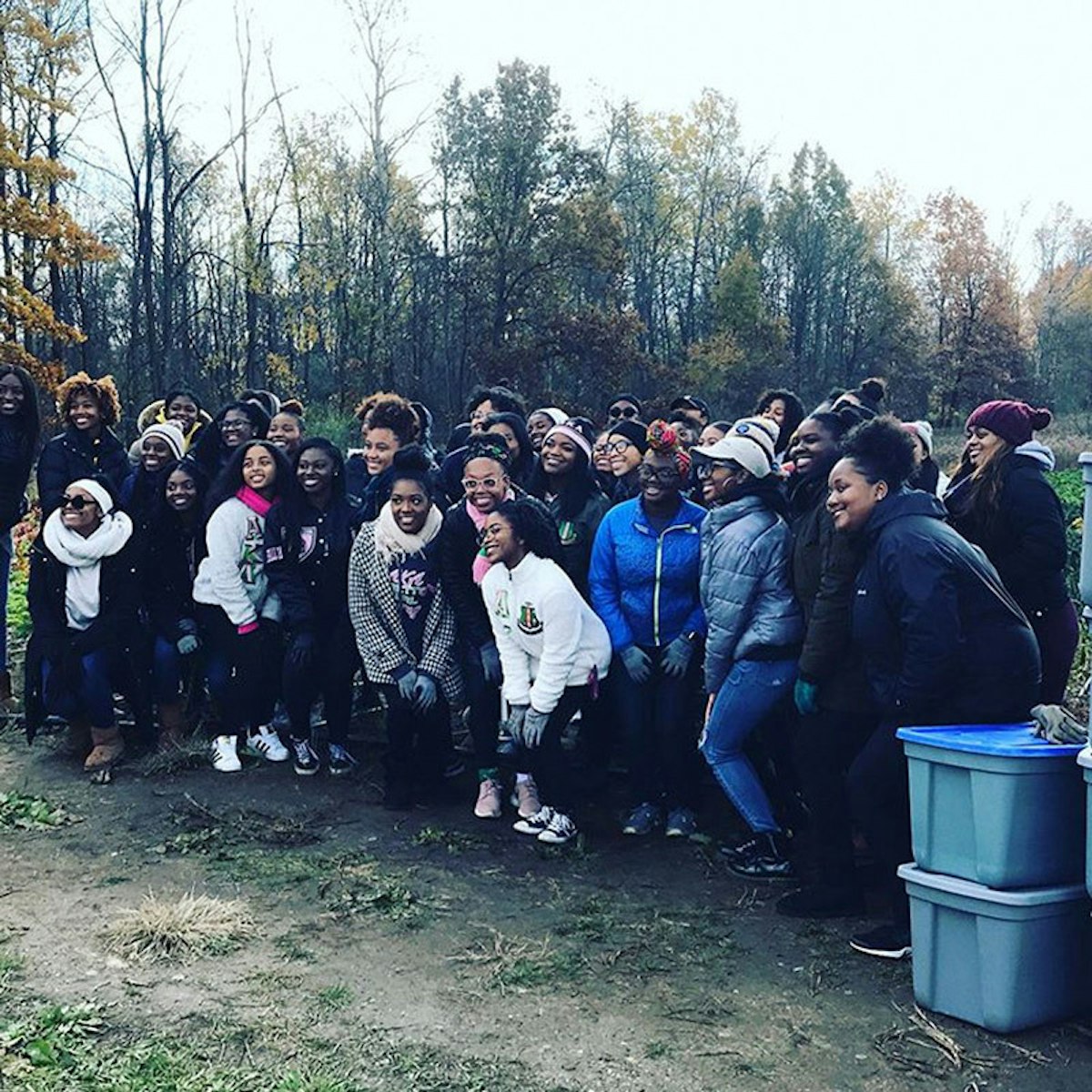
"I want to know what equity looks like for everyone involved. I want to know how we can create space to have open conversations about systems and policies that are oppressive," Johnson says. "With real conversations we can figure out how to make change or create a new food system."
The power of open dialogue is something that Johnson understands well. Before coming to U-M, she worked at Michigan State University as an Inclusive Learning Designer. And before she was an MDes student, she was a Design Manager for the Center of Academic Innovations at U-M. She's also served on the board of the Northwest Initiative, helping to create healthy and equitable systems for food in Lansing.
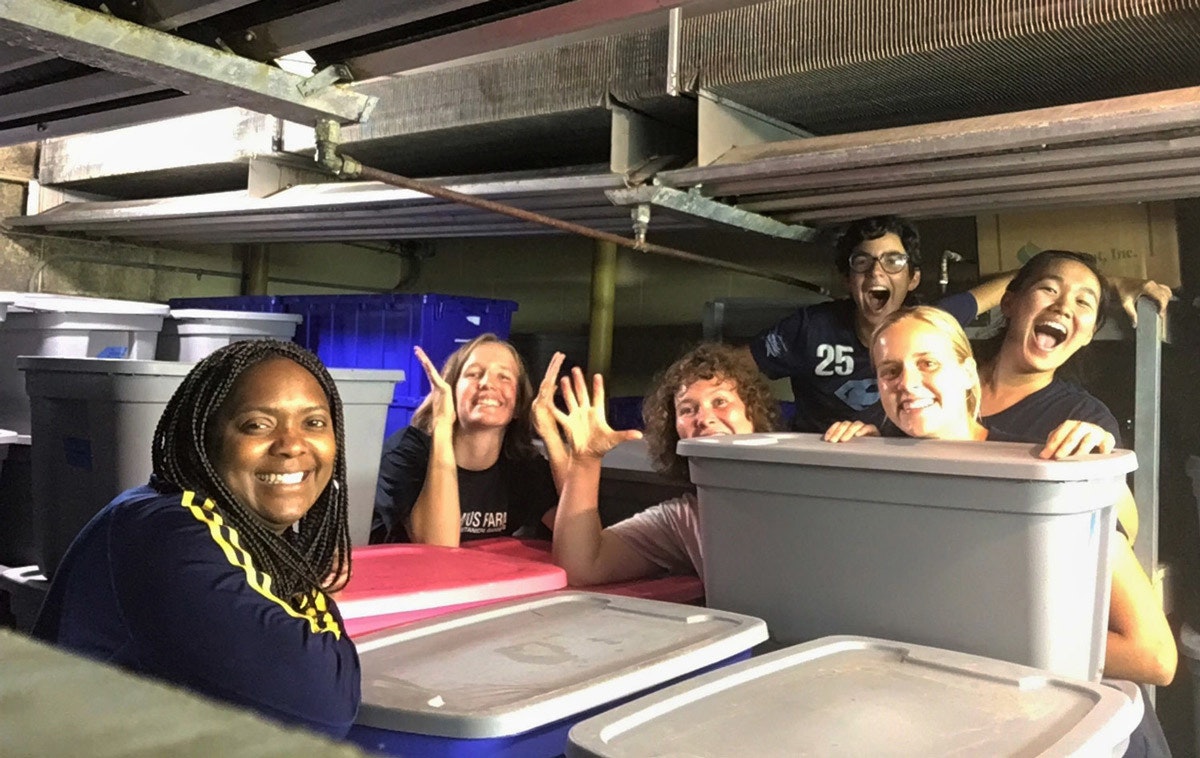
"It's hard when you feel like you're one person, but coming together collectively gets things done," Johnson says. "It's about coming together. Not with people who are like-minded, but with people who are like-hearted."
She puts Campus Farm Program Manager Jeremy Moghtader in the latter category. Before hiring Johnson, Moghtader had advertised the DEI manager job posting a number of times. When he first met Johnson at a food conference in 2019, Moghtader was struck by her passion. After hearing her goals he encouraged Johnson to apply and she has not failed to impress him.
Speaking to how Johnson led the farm staff in guided conversations during the United Way’s 21 Day Equity Challenge, a county-wide initiative to help the community understand and confront racism, Moghtader notes that she was instrumental in facilitating "robust connections" and learning. "It was nice not just for our staff, but for our parent organizations. Keesa is really good at creating and holding space for people," he says.
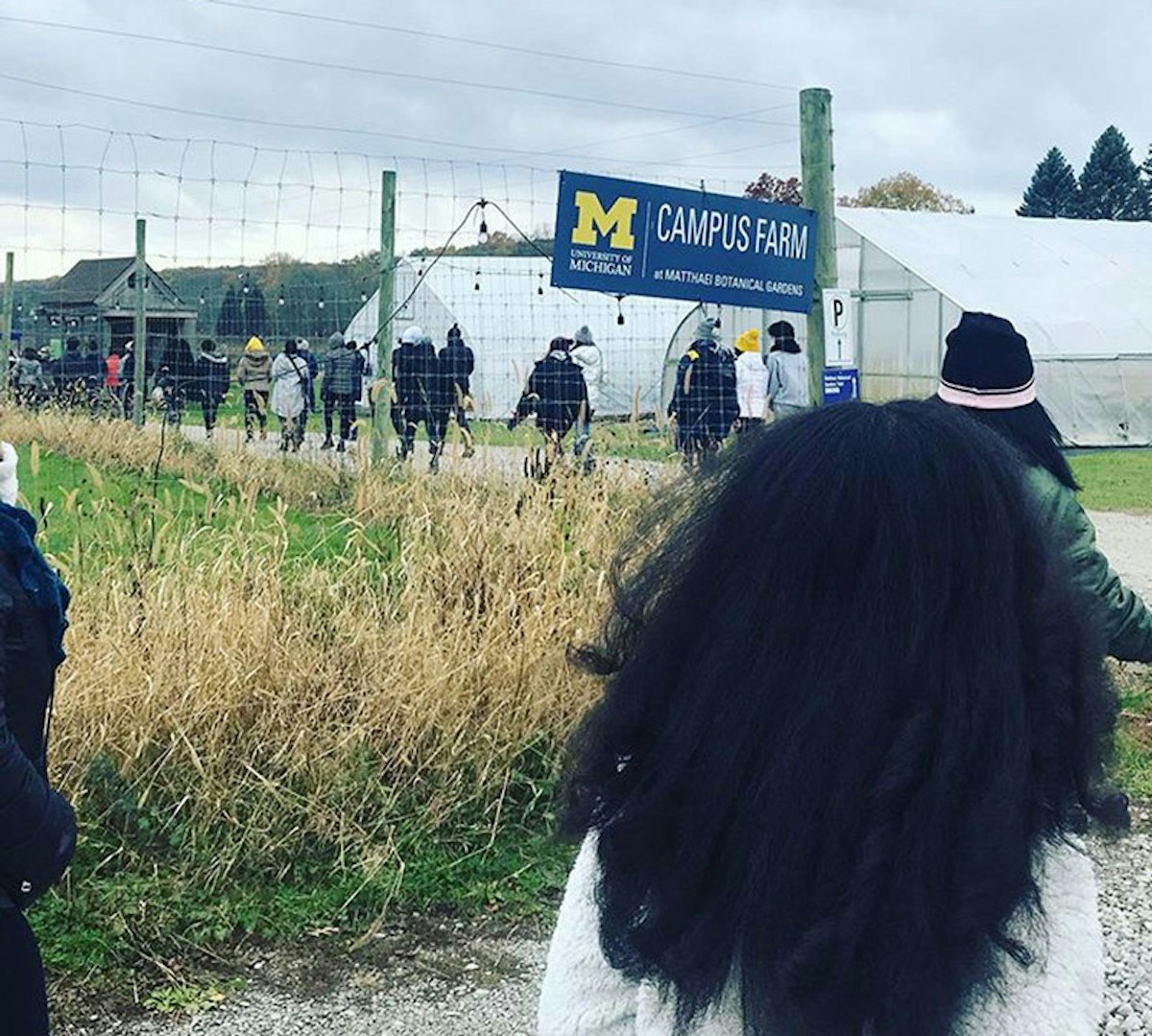
Moghtader also recalls Johnson asking him early on if there was a record of the students who have been involved in the farm.
"I liked that she was thinking about capturing the ecosystems of those interactions, in the interest of understanding the design principles," he says. "She comes with fresh eyes and has an approach that makes her impactful."
Part of Johnson's approach has touched him personally. Whenever discussing land, food and farming, she begins by talking about healing.
"It's so interesting to hear someone speak about my world, and the learning community here, using language as a DEI expert and as a designer," Moghtader says. He adds that he would never have discussed farming using the word healing prior to meeting Johnson. He might have used the word empowering, but today he combines the concepts of empowerment and healing.
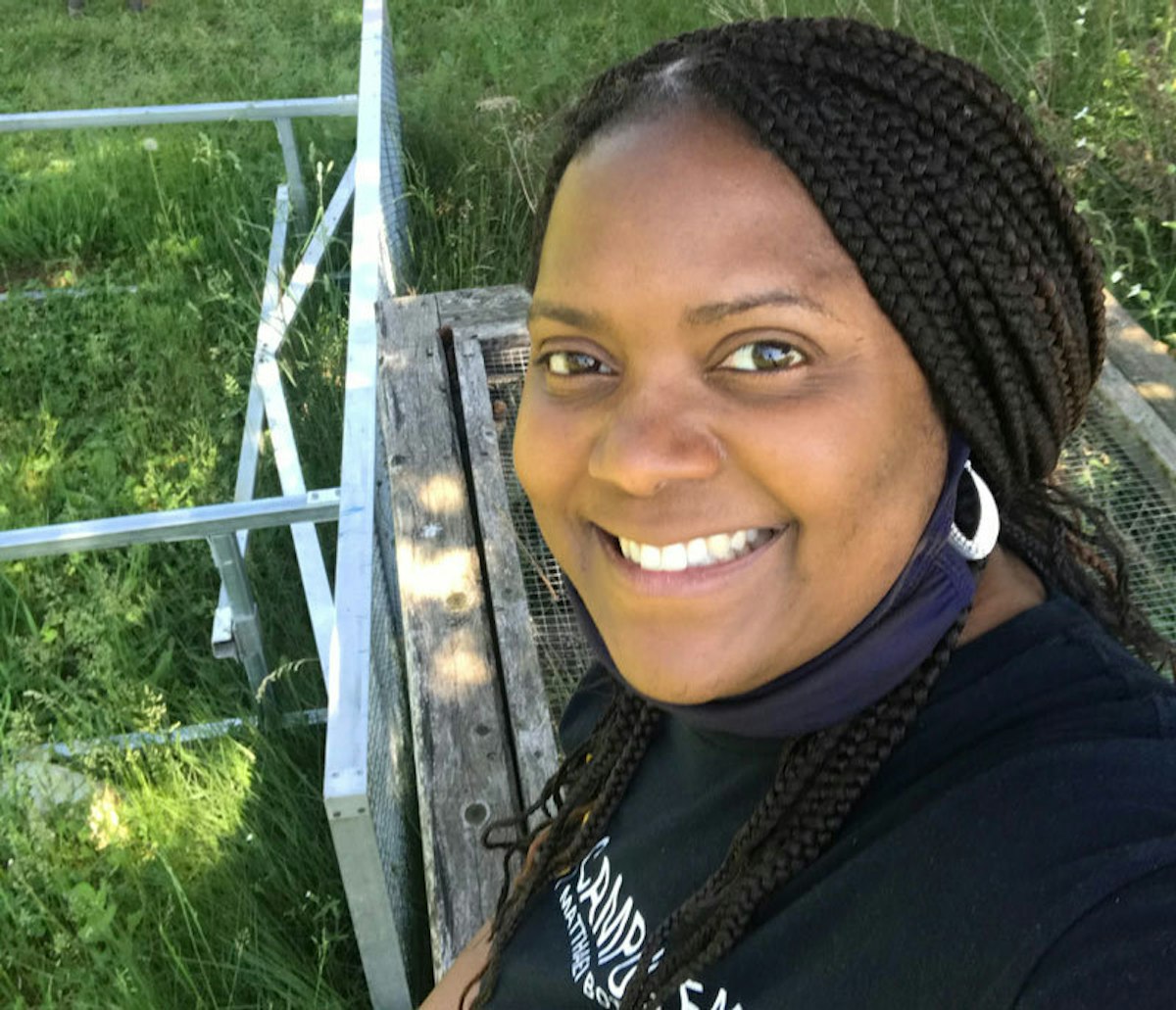
As an African-American woman who has farming in her family history — her paternal grandparents were sharecroppers and some maternal relatives were peanut farmers — Johnson feels that healing is essential to her DEI conversations.
"Because of systemic issues and the oppressive systems that we live in, black people and other people of culture don't get enough time to release some of the trauma that we have in our DNA," she says. "A lot of my equity work is about creating agency on any space I enter as a designer. Giving Power and healing, allows others to grow into their power in a healthy way to foster in change so because we have to get past a lot of the trauma when we start talking about the wrongs in relation to ourselves, interpersonal relationships, institutions, and governmental policies."
An opportunity for healing is what Johnson offered graduate students and postdoctoral fellows who signed up for a tour of the Campus Farm on March 11, 2020. She and Moghtader led them through the farm, providing hands-on experiences that included tasting microgreens and harvesting spinach. The tour ended in the student-built straw bale house with a discussion about food justice and food security.
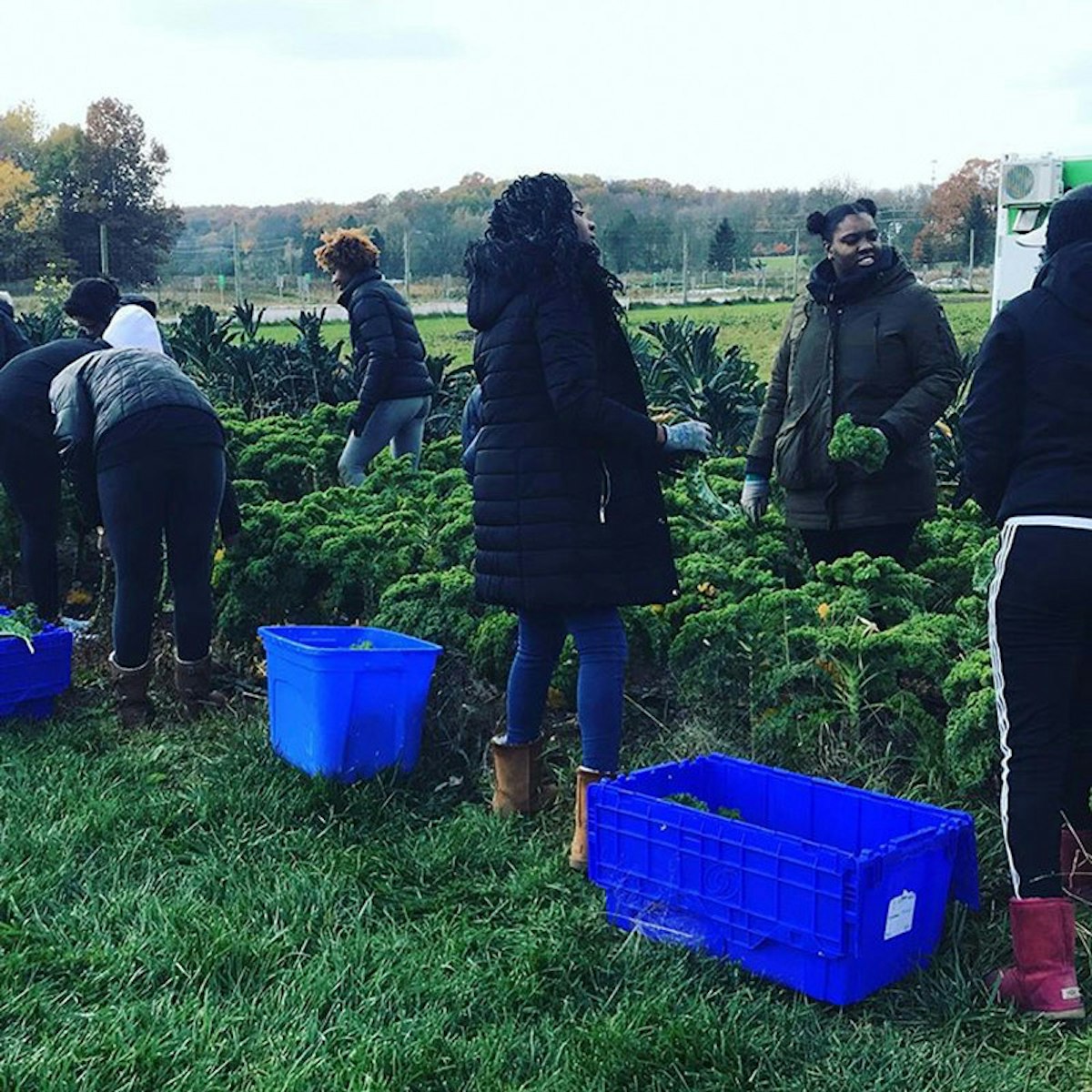
"A lot happens when someone better understands the earth and the effort of growing food," she says. "Somebody on that tour could become an NGO executive. They could remember how they felt picking spinach and decide to do something similar in their NGO," she says. "That's what DEI should be. It's about being subversive to oppressive structures and building communities."
With one more year left in the DEI certificate program, Johnson is ramping up. She's planning to update her survey, create a multi-phase design research plan around DEI/Innovation, and share her findings both locally and globally.
"I want to tell the stories of the people here and open up the space for every student to feel comfortable to work within agriculture," Johnson says. "In that space we can heal together and discover what equity and sustainability means, and how we can practice it inside and outside of the farm."
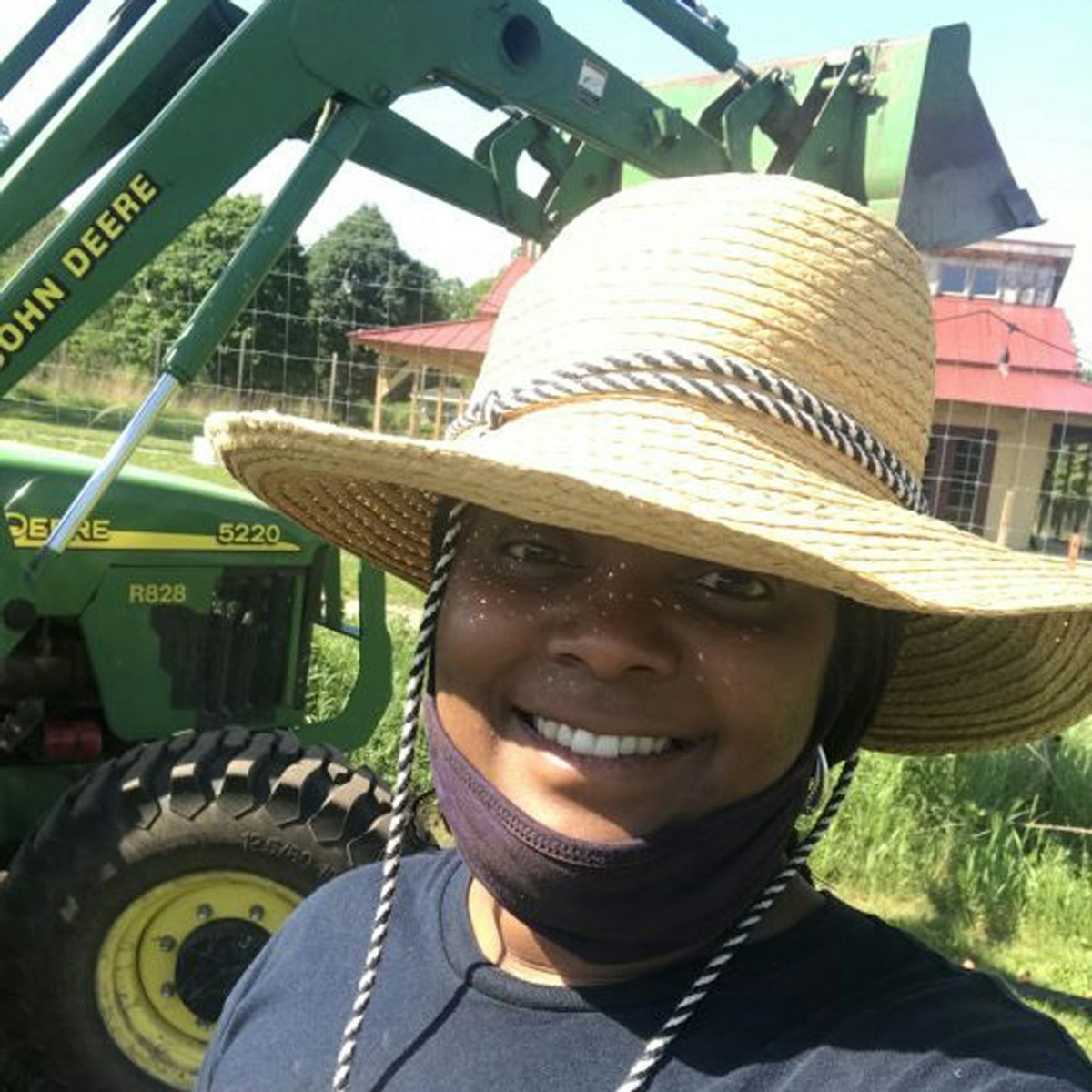
Story by Jaishree Drepaul-Bruder.